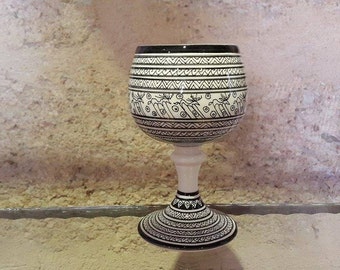Hittite instruction for priests (Numbers 8)
Several copies of a Hittite text outlining the instructions for priests and temple personell are currently housed in Turkish collections. Dating prior to the time of the Hittite king Suppiluliumas I (ca. 1350-1325 B.C.), the text details these temples officials’ proper appearance and conduct during the performance of their duties. A few instructions nearly parallel the Biblical rules for priests and Levites:
- Hittite temple kitchen attendants were to trim their hair and fingernails and dress in clear garments. The house in which the sacred bread was baked was to be swept clean, and no pigs or dogs (animals considered filthy in antiquity) were allowed in that house. Similarly, the Biblical consecration ritual for the Levites required them to shave their entire bodies and wash their clothes to symbolize their absolute ritual purity before God (Numbers 8:7). Further, the Israelite high priest was to maintain clean and well-coiffed hair to refrain from tearing his clothes in mourning because he had been dedicated with the anointing oil of the Lord (Leviticus 21:10-12).
- Although Hittite temple servants received a daily allowance of foodstuffs for themselves and their families, if a servant were to siphon extra wine or steal a portion of ant item intended for sacrifice, he was to be put to death. Likewise, if such a servant were to pilfer a temple treasure or any other article designated for the gods’ use, he and his entire family were to be killed. In Israel, Levites too received daily allowances from their congregations’ sacrifices (Leviticus 28-36, Numbers 18:8-19, Deuteronomy 18:1-5). Yet Eli’s wicked sons selected the choicest portions of meat before the sacrifice was properly divided, thereby incurring God’s wrath (1 Samuel 2:12-17, 27-34). And, just as the Hittites were warned (under punishment of death) not to steal from the gods, Achan and his family were stoned to death because he retained some plunder that was to have been devoted to the Lord (Joshua 7:1, 16-26).
- Hittite priests were to conduct designated feasts at their appointed times, using the reqisite number of animals and/or other food supplies. Similarly, God instructed Moses regarding the observance of specific feasts at particular times throughout the year (Leviticus 23, Numbers 9:1-14, Deuteronomy 16:1-17).
- Hittite farmers and herdsmen were to bring the firstfruits of their crops and herds to the temple. If they attempted to cheat the gods by withholding the best produce or highest quality fatted animals for themselves, they were severely punished, often by their own deaths and those of their entire families. Likewise, the Israelites were to donate the firstfruits of their harvest to the Lord: The firstborn of man and beast were to be redeemed – in a sense “purchased back” through sacrifices – in recognition that God had provided for and sustained them (Leviticus 23:9-14, Numbers 18:13, Deuteronomy 18:4, Nehemiah 10:35-36).
The fact that the priestly stipulations in effect during the times of Moses, Eli and Samuel had contemporary parallels among the Hittites is important because such commonality undermines the widely excepted theory that the Biblical priestly code is a very late work that could not have originated during the time of Moses.
—
